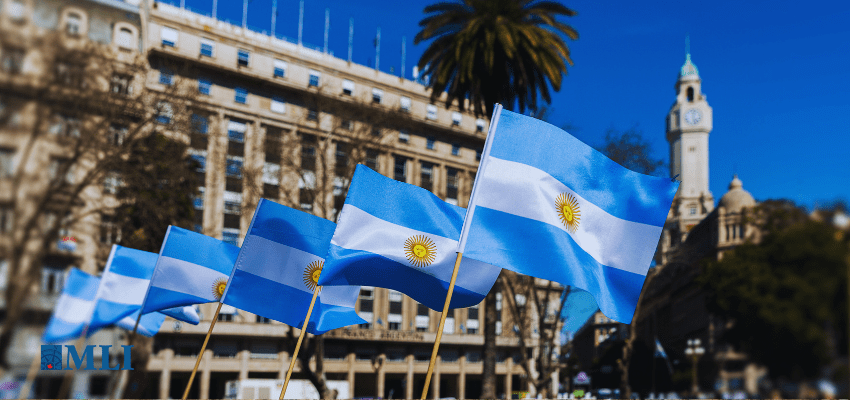This article originally appeared in City Journal.
By Jon Hartley, June 14, 2024
Javier Milei is on tour. Following trips to Spain, Israel, and Davos, the Argentine president most recently traveled to Silicon Valley, where he spoke with tech giants, including Apple’s Tim Cook, Meta’s Mark Zuckerberg, and Google’s Sundar Pichai. It’s rare these days to see a politician on the right take photos with so many luminaries in the notoriously progressive Bay Area. To Milei, it signifies that “the world is waking up to [economic] freedom” as a means to create broad-based opportunity and sustainably lift the poor out of poverty.
While in California, Milei delivered a highly technical lecture on his new book, Capitalism, Socialism, and the Neoclassical Trap: From Economic Theory To Political Action, at Stanford. He covered the history of economic thought, criticizing John Maynard Keynes while lauding names like Adam Smith, Friedrich Hayek, Milton Friedman, Ronald Coase, and Murray Rothbard—and even some lesser-known economists like Frank Ramsey, Knut Wicksell, and Angus Maddison. The self-described libertarian leader was broadly critical of economic models, which can veer far from reality, and of academic economists for using market failures to justify excessive government intervention.
Back in Argentina, Milei still has a significant battle ahead. He will be judged on his ability to roll back decades of Peronist policies and improve economic performance in the historically inflation-ridden country.
He has already racked up several economic-policy victories. Argentina’s year-over-year inflation rate has fallen to single digits, as of May 2024, thanks to Milei’s “shock therapy” policies of currency devaluations and energy and transportation cuts. Since Milei’s election, the country’s equity markets have rallied significantly, and its dollar-denominated international bonds have reached new highs in response to planned austerity measures. Argentina has made such significant fiscal progress that the IMF has unlocked additional funding as part of its conditional lending deal with the country. Last week, Milei’s most significant legislative reform package to date, including substantial deregulatory and fiscal-consolidation provisions, eked out general approval in Argentina’s Senate, but several pieces face uncertainty in the lower house.
Argentina was once one of the world’s wealthiest countries, but Juan Peron’s statist policies changed the country’s trajectory beginning in the 1940s. Intense regulation, industry takeovers, and destructive export controls—especially those on beef—tanked the country’s fortunes. Following decades of economic tumult, Argentina’s GDP per capita is now about $13,650.
It remains to be seen whether Milei and the legislature can roll back regulatory policies that have stifled whole areas of the Argentine economy. Milei has also yet to follow through on his campaign pledge to adopt the U.S. dollar as the country’s official currency, a move made less necessary by inflation’s downward trend.
Milei also faces political opposition determined to thwart his agenda. He must ask himself: What is the right speed to make economic reforms? His predecessor from 2015 to 2019, Mauricio Macri, failed in part because he was too slow and incrementalist to deliver meaningful change. Milei has taken a different approach—rapid shock therapy well in advance of another election. Reducing government expenditures and deregulating much of the statist economy will undoubtedly come at a high political cost in the short run. Unions in Argentina are already striking against Milei’s economic policies, with the effect of shutting down some public transportation services. Some students are protesting education cuts. But the political cost is one that Milei can bear for the time being.
Milei has made meaningful progress toward his goal of liberalizing the Argentine economy to enable human flourishing and alleviate poverty. Time will tell whether his success continues—and leads other countries to adopt his bold and innovative platform.






